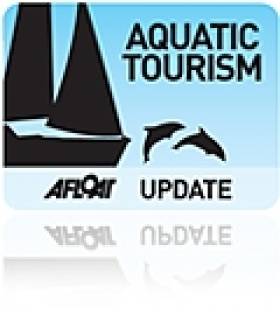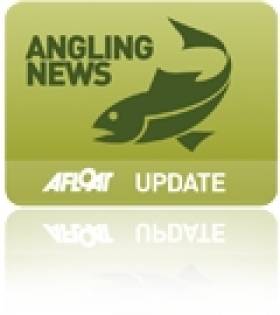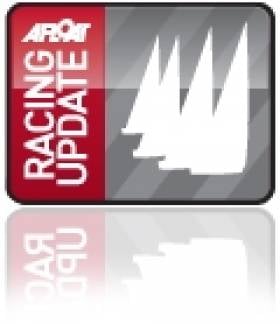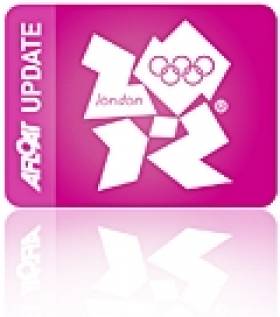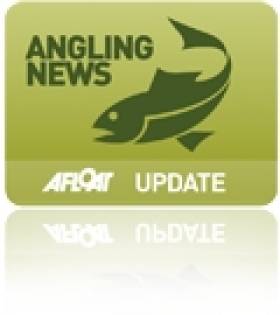Displaying items by tag: Forum
Classes Hear ISA Plans to Support Irish Dinghy Scene
An Irish sailing classes forum held at the weekend gave an opportunity to hear Irish Sailing Association progress at revitailing Irish dinghy sailing. Open to all clubs and classes the forum was hosted by appointed ISA Director responsible for dinghies and Classes, Sarah Byrne. Other ISA attendees included Sarah Louise Rossiter, the Eastern Region’s Development Officer, CEO Harry Hermon, ISA President Dave Lovegrove, Board Member Brian Craig, Strategic Group Members Jack Roy and Harry Gallagher and Alec Elliott who would give a presentation on website developments at the ISA. ISA President Dave Lovegrove opened the proceedings by making references to the successes of 2015 but also cautioning that more work needed to be done.
The 33 people in the room representing 16 classes and 5 clubs were advised that the ISA’s assessment of the participation level in classes was still based on numbers at the National Championships, as was the case in 2013. An attempt to survey clubs and classes on activity levels, and structures within their domains to recruit new members had not yielded sufficiently tangible results to allow an accurate assessment to be made. Consequently, participation trends from 2013 to 2015 were again presentated as a bar chart of Nationals entries.
Many developments were presented and a Club survey has shown:
- a dilution of a segmented fleet structure in Ireland;
- the strength of Junior single-hander fleets in larger sailing centres;
- the lack of transition to adult, mainly double-hander classes;
- inactive boats.
A comment from the floor suggested that the continuing focus on single-handed classes was evident in the Pathway structure in terms of the ratio of single-handed classes to double-handed classes that were being promoted. It was suggested that this favouritism towards the single-handers was detrimental to the overall growth of numbers – on two counts – it prompted a dropping out situation if success wasn’t achieved and it detracted from the development of crews and multi-handed sailing. The latter presents a problem where “family sailing” might be a viable way to grow numbers in a club environment.
Already in 2015 and moving into 2016, the ISA will, from a class perspective continue to further enhance a robust platform and structure for Irish sailing:
- Class coaching grant provision – 2016 launch in January;
ISA have indicated that coaching grants are awarded on the basis of three parameters – engaging a coach on the ISA approved list, providing coaching to a class affiliated to the ISA and the hosting of such coasting at a Category 1 club. One speaker advised of a situation where a coaching grant was awarded where a Category 1 club was not involved. Harry Hermon acknowledged that this was a special case as it had been identified that there was a possibility of a club being established in this area and it was felt that coaching might assist that initiative. This led to a further suggestion from the floor that coaching grants might be awarded on the basis of meeting two of the three parameters listed above – Recognised/Approved Coach, Affiliated Class, Category 1 Club. It was also suggested that the list of Approved/Recognised Coaches needs to be updated. The point was also made that while coaching should be available to all class members, there is a deficit of Recognised/Approved Coaches who can provide this service to the top end of the stronger classes, forcing such classes to get coaches from the UK.
- Changes in training, instructor training and a new Club coach qualification;
Board Member Brian Craig highlighted changes to the Instructor and Coaching Schemes and advised that these will be implemented in 2016 and advised that these schemes would be audited for assessment.
- Push to qualify more race officials to support competition;
Harry Gallagher advised the meeting that he has been asked to take over the Race Officials Policy Group from Jack Roy. Harry highlighted the various courses that are provided for the training of Race Officials – Race Officers, Judges and Umpires but also Time-keepers, Recorders, Flag personnel. He also advised that a course for Mark-layers with specific reference to laying course by GPS will be developed and provided next year. Jack Roy’s experience as part of the 2012 London Olympics Regatta Management Team had highlighted the importance of laying accurate courses.
Harry is also keen to bring class measurers into the “fold” of Race Officials and suggested that a communique would go out from the ISA to classes to get the details of their class measurers.
- Greater budget and support for ‘Try Sailing’ initiatives which proved successful in 2015.
The 2015 version of the “Try Sailing” scheme had been focussed on clubs. In 2016, the idea will be to get a greater buy-in to the initiative from the classes.
All agreed that true access to the water is through Clubs, Classes and training centres. They are the deliverers of sailing programs and competition circuits. Classes agreed to target other fleets and approach clubs to develop strategic direction through Club and Class ‘pathways’. A smooth transition is key to facilitate the development of sailors as their skills and aspirations develop both locally and on the wider circuit. The ambition is to connect and strengthen what is a segmented Irish fleet, to cultivate an appetite for local fun and accessible events and to feed into wider competition.
Sarah Louise Rossiter highlighted how classes might interact with clubs in order to showcase the class to a club where there may be an opportunity to establish a new fleet. She suggested there was little value in simply arriving at a club for a weekend event and hoping that something might manifest itself as a consequence. A willingness to engage with the club and its members was required and this could take the form of providing advice on the costs of buying a boat, letting people know the combination of crew sizes that could sail the boat, availability of second-hand boats, how far people would have to travel to engage with other people/clubs sailing the same type of boat, the availability of road trailers to allow people to travel.
All were reminded that the Junior single hander classes continue to thrive, but there is still a huge fall off in take up in adult fleets. This is not unique to Ireland nor just to sailing. It was agreed that this area should be explored over the coming months, with the participation of the single hander fleets to try and sustain those sailors who choose not to go down the laser route and build on the years of commitment and dedication of the parents, coaches and children to transition into adult fleets. It was remarked that catching just some of the fallout, even in a less committed way, would help Irish sailing generally.
A noteworthy mention of a succesful strategy in this area came from Sam O’Byrne of the J24 fleet. He highlighted the successful Howth Yacht Club strategy to ensure their 80 strong 18-25 yrs cadet squad continue to sail.
Sam also highlighted that IUSA (Irish Universities Sailing Association) recently had an event with 350 participants and suggested that the ISA should contact IUSA so that they could be made aware of the IUSA events as they might impact on class sailing events on the regular calendar.
The meeting ran over time and opportunities to merge for events were limited – however, those declaring an interest to find an event partner will now be facilitated in the events calendar section on the ISA website.
Two speakers from the floor suggested that the meeting was in danger of discussing old recurrent problems and that there should be a focus on event planning which is what the second speaker had thought the meeting was about. At this stage a number of speakers indicated that event dates submitted to the ISA had not appeared on the regatta fixture list from the website put up on screen. An apology was offered in this regard. Various speakers then tried to detail regatta dates for 2016 and indicated whether they wanted other classes to share the declared venue with them. The ISA also advised that the tender to host the “Dinghyfest” that RCYC had hosted in August past in 2016 was out and due to be returned with a couple of weeks. The “floor” indicated that this timetable was far too late, which was acknowledged. A possible date for the Dinghyfest was suggested but was immediately countered by the fact that a Laser Worlds regatta is scheduled for the same period.
All classes were also urged to update their contact information with the ISA and on their own websites to facilitate all enquiries, particularly from Clubs and classes to multi-fleet event or indeed build ‘pathways’.
Fáilte Ireland Highlights 'Huge Potential' of Marine Tourism
#AQUATIC TOURISM - Water-based activities from kayaking to surfing to diving have a "huge potential" for Irish tourism.
That was the message from Fáilte Ireland's Outdoor Adventure and Activity Forum in Westport, Co Mayo this week, The Irish Times reports.
Figures announced at the forum showed that angling tourism accounted for €58 million in revenue, while surfing attracted 52,000 visitors - a low number considering Ireland's growing reputation in the sport.
Fáilte Ireland's Brian Maher said that the agency is working on a new strategy for aquatic tourism to take advantage of Ireland's potential in the area, aiming to develop activities from angling to cruising and sailing to surfing.
“One of Ireland’s great strengths has been in angling," he said. "There is still tremendous potential there for that core group of anglers.
"It is incumbent on us to develop this and other water-based activities properly because there is so much potential there.”
First Meeting of National Inland Fisheries Forum
Seasonality, climate change and the environment were the hot topics discussed at the inaugural meeting of the National Inland Fisheries Forum in Athlone last Thursday.
Inland Fisheries Ireland chief executive Dr Ciaran Byrne hosted the forum, whose 60 voluntary members - drawn from various stakeholder groups - are is set to meet twice annually.
The day saw TV personality and keen angler Derek Davis installed as chairman of the forum, following his appointment by the Minister for Natural Resources.
Davis noted that the forum "can influence policies for the protection, management, development and conservation of this valuable resource now and for the generations to come."
In his own address to the forum, Dr Ciaran Byrne highlighted the members' collective experience in fisheries management on Ireland's inland waterways.
“A number of you have served as members of the central and regional fisheries boards, some for over 20 years," he said. "As members of the forum you have the opportunity to discuss and advise on the future of inland fisheries in Ireland. IFI looks forward to receiving your considered views on the various issues.”
In a message to the meeting, Minister Pat Rabbitte stated his belief "that the forum will provide a meaningful channel of communication between the stakeholders and management of the inland fisheries resource".
World Yacht Racing Forum Planned for Portugal
Since its launch in 2008, the World Yacht Racing Forum has become the annual meeting place for leaders in the business of sailing and yacht racing to network and discuss ways in which the sport can be grown and improved globally.
Organised by Informa Yacht Group, the WYRF will once again reassemble the who's who of international yacht racing, including athletes, event organisers, sponsors, cities and venues. The two-day Forum will be held alongside the Yacht Racing Design & Technology Symposium, giving delegates the opportunity to meet high-profile design and technology experts from the race boat industry, and to discuss the latest research and trends in performance boat technology.
Now in its fourth year, the World Yacht Racing Forum is the leading international conference for the yacht racing industry. The 2011 edition of the event will welcome new experts and personalities from the yacht racing scene, and introduce a number of new discussion themes.
Key topics will include an insight into the sponsorship landscape and where sponsors are spending their money, a perspective on successful sponsorship strategies, cost-effective new media including digital, a focus on women in sailing, driving growth via active yacht club management, breaking down the bid process for cities and venues, an audience with the America's Cup teams and organisers, and much more!
Mirabaud & Cie, Private Bankers also returns to the World Yacht Racing Forum as Gold Sponsor of the forum and Presenting Sponsor of the Yacht Racing Images Exhibition launched at the forum in 2009. Mirabaud will present an award for the best yacht racing image of the year as voted by all participants of the forum. The exhibition will also be available online.
The World Yacht Racing Forum is now universally recognised as the platform used by the international yacht racing community to define and debate the sport's key issues, and propose new ideas aimed at improving its structures and commercial value.
Over 400 delegates are expected in the picturesque region of Estoril in December. Delegates can benefit from a 30% early-bird discount before 1 October by registering online at www.worldyachtracingforum.com <http://www.worldyachtracingforum.com>



























